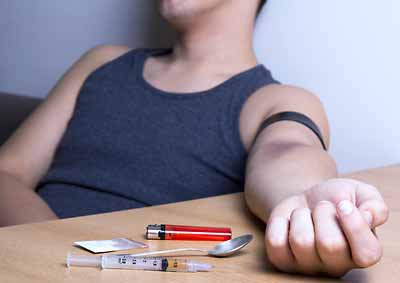Cortisol May Help Curb Heroin Cravings
Abstract
As the rapid rise in heroin use has led the Centers for Disease Control and Prevention to call it an “epidemic,” researchers have started to explore new ways to reduce cravings for the drug.

The link between stress and addiction is well established, with previous studies showing that stress exacerbates cravings and precipitates relapse. However, according to recent study published in Translational Psychiatry, taking the exogenous stress hormone cortisol may suppress, rather than increase, cravings in patients addicted to heroin.
A team of researchers from the Psychiatric University Clinics in Basel, Switzerland, enrolled 29 heroin-dependent individuals in a double-blind, placebo-controlled study to examine whether a single oral dose of 20 mg cortisol would affect their craving for heroin. The study participants were recruited from a heroin-assisted treatment program.
The study took place over two days, which were no less than one week apart and no more than three weeks apart. On day one, patients were either administered a dose of cortisol or placebo 105 minutes before a heroin administration (doses ranged from 113 mg to 964 mg). The treatments were reversed on the second day of the study, so that all patients took cortisol at least once.
After each dose of cortisol/heroin or placebo/heroin administration, patients were asked at varying time points to rate the intensity of their cravings on a visual analog scale for craving, a test that measures intensities of emotions along a horizontal line with two end points—“0” being not at all and “10” being very strong.
The results showed a significant decrease in self-reported cravings for heroin within an hour to 90 minutes after the cortisol dose, compared with placebo. Cortisol administration reduced craving in patients receiving a low dose of heroin (up to 305 mg per day), but not in patients maintained on higher doses of heroin.
The authors noted that the finding suggests that the effect of the stress hormone on addiction may be complicated. Cortisol does not enhance cravings, but it may suppress heroin-related memory of reward and arousal. The memory-and-learning neural circuits are known to play a key role in the mechanisms of addiction, they added.
“This small and preliminary study,” Petros Levounis, M.D., M.A., chair of the Department of Psychiatry at Rutgers New Jersey Medical School, told Psychiatric News. “But it suggests a new avenue for research on new treatments for addiction.”
According to Levounis, while previous studies have examined the effects of addiction on cortisol, the stress hormone has not previously been examined as a potential treatment. Instead, current treatments for heroin addiction have been limited to molecules acting on the opioid receptors.
The researchers speculated that cortisol may have been ineffective in reducing cravings in patients receiving higher doses of heroin due to the greater severity of their addiction, the cortisol dose used in the study, or possible downregulation of opioid receptors in high-dose heroin users, which could alter glucocorticoid-related memory-retrieval mechanisms.
The researchers concluded that future studies were merited to identify potential factors that influence the effects of cortisol on heroin craving in various populations of individuals recovering from heroin addiction. ■



